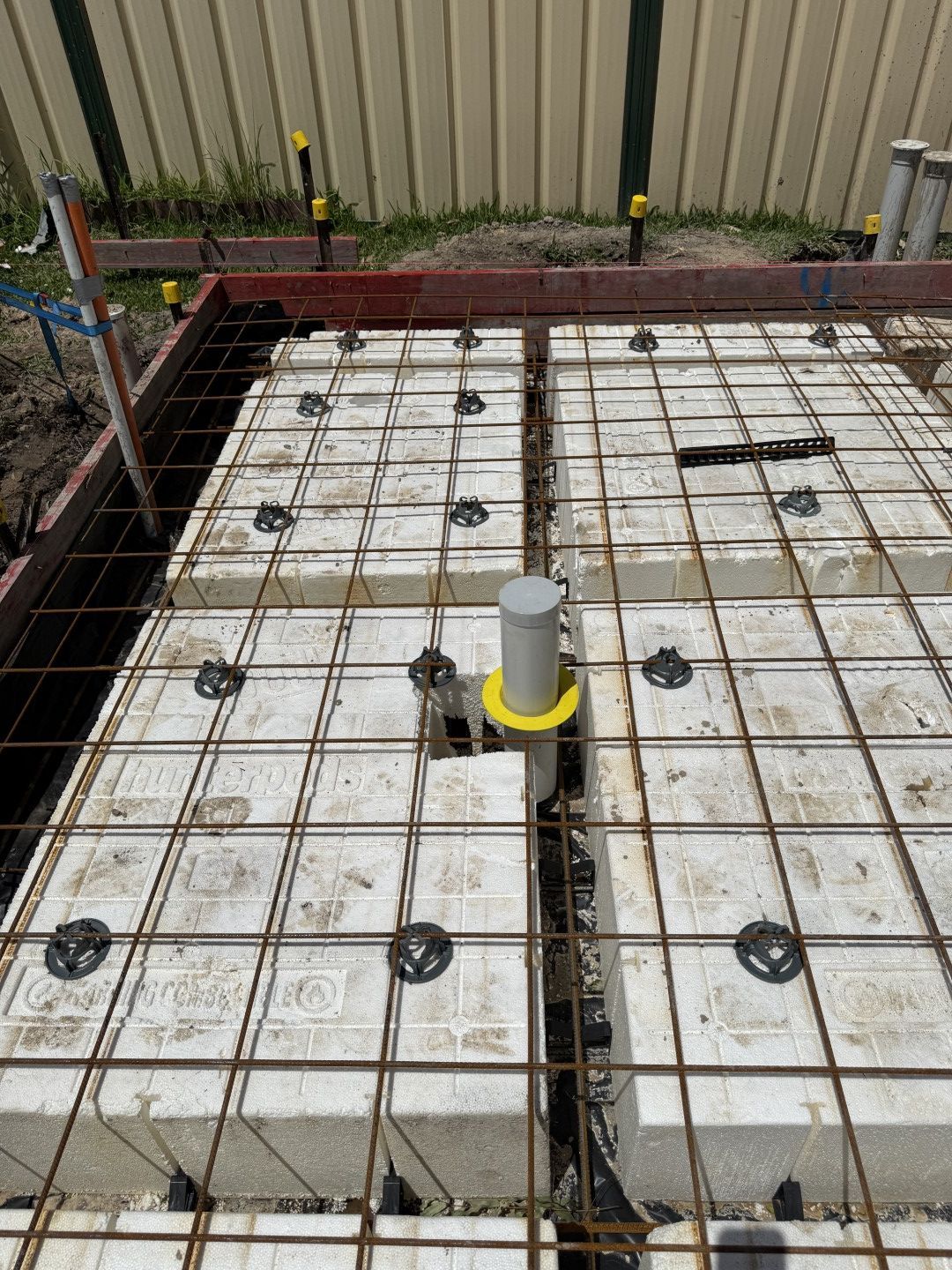What is Civil Construction? A Comprehensive Guide
Understanding civil construction is fundamental to appreciating how modern infrastructure is developed. In this guide, we explore what is civil construction, delve into the definition of civil construction and civil works, and explain the role of a civil contractor in the broader context of civil engineering construction. Whether you are new to the industry or an experienced professional, this comprehensive overview of civil construction work—including its history, scope, and the various stages of civil works and construction—will enhance your knowledge of the field.
Understanding Civil Construction
Civil construction is a vital sector of the construction industry that focuses on the design, development, and maintenance of public infrastructure. When we ask, what is civil construction, we refer to the process of planning and executing large-scale projects that support transportation, utilities, water management, and public amenities. The definition of civil works not only covers the physical act of construction but also includes the integration of engineering, design, and project management.
Definition of Civil Construction
The term civil construction can be defined as the assembly of large-scale public works that range from roadways and bridges to dams and airports. In simple terms, it encompasses all civil construction work performed to build, maintain, and improve infrastructure. This definition of civil construction aligns closely with the meaning of civil works, which focuses on the systematic construction and maintenance of structures that support societal needs.
The Role of Civil Construction in Infrastructure Development
Civil construction is the backbone of any country’s development strategy. It plays a critical role in construction and civil engineering by ensuring that essential services like transport, water supply, and waste management are efficiently provided. The expertise required in civil construction demands a blend of technical knowledge, project management skills, and adherence to strict safety and regulatory standards.
History and Evolution of Civil Construction
Historically, civil construction has evolved from simple stone structures to complex systems that integrate modern technology and sustainable practices. The civil engineering construction techniques have advanced significantly, resulting in safer, more durable, and environmentally friendly infrastructure projects. Today, the industry embraces innovations such as Building Information Modelling (BIM) and prefabrication, which streamline the civil works and construction process.
What Does Civil Construction Entail?
To answer what is civil construction work, it is essential to understand the scope of the industry. Civil construction encompasses a wide range of activities that collectively contribute to the development of public infrastructure.
Scope of Civil Construction Work
- Infrastructure Projects: Construction of roads, highways, bridges, tunnels, and railways.
- Public Facilities: Building hospitals, schools, government offices, and recreational areas.
- Utilities: Establishing water supply systems, sewage treatment plants, and energy infrastructure.
- Environmental Works: Projects that include stormwater management, erosion control, and land reclamation.
Key Sectors in Civil Construction
Civil construction is divided into several critical sectors:
- Transportation Engineering: Focused on roads, bridges, and railways.
- Water Resource Engineering: Involves dams, reservoirs, and water supply networks.
- Environmental Engineering: Addresses issues such as waste management and pollution control.
- Structural Engineering: Deals with the design and construction of large-scale buildings and public works.
These sectors represent a broad civil construction portfolio, reinforcing the definition of civil works and illustrating the meaning of civil works as it applies to modern society.
Types of Civil Construction Projects
Civil construction projects vary widely in scale and complexity, reflecting the diversity within the industry.
Government vs. Private Civil Construction
- Government Projects: Typically involve public infrastructure like highways, bridges, and water treatment facilities. These projects are often funded by public resources and follow rigorous regulatory standards.
- Private Projects: May include commercial developments and large-scale industrial projects where a civil contractor plays a crucial role in delivering the project within budget and on schedule.
Large-Scale vs. Small-Scale Projects
- Large-Scale Projects: Involve massive investments and complex logistics, such as airport construction or extensive roadway networks. These projects represent the pinnacle of civil construction work and construction and civil engineering.
- Small-Scale Projects: Might include local road repairs, small bridges, or minor public utility upgrades. Although less extensive, these projects are equally important for community development.
Major Categories of Civil Construction
- Structural Engineering Projects: Focus on creating the skeleton of buildings and public structures.
- Transportation Engineering Projects: Involve the construction of roads, bridges, and transit systems.
- Water Resource Projects: Encompass dams, reservoirs, and irrigation systems.
- Environmental Projects: Address land reclamation, waste management, and sustainable urban development.
Each of these categories is integral to the overall civil construction framework, contributing to the civil works and construction efforts that underpin modern infrastructure.
Civil Construction in Australia
Australia boasts a dynamic civil construction industry that plays a critical role in the country’s economic and social development.
Key Players in the Australian Civil Construction Industry
Leading firms in Australia, including top civil contractors, drive innovation and efficiency in civil construction work. These companies often collaborate with government bodies and private enterprises to deliver large-scale projects.
Government Regulations and Standards
The construction process Australia is governed by stringent regulations and standards, ensuring that every civil construction project adheres to safety, environmental, and quality benchmarks. These standards help define what is civil construction work and establish the definition of civil construction across the industry.
Notable Civil Construction Projects in Australia
Australia is home to landmark projects such as major highways, bridges, and water management systems. These projects exemplify civil construction excellence and demonstrate the meaning of civil works in transforming urban and rural landscapes.
Roles and Responsibilities in Civil Construction
The success of any civil construction project relies on the expertise of its workforce. Various professionals work together to bring these projects to fruition.
Engineers and Architects
These professionals design and plan projects, ensuring that all civil construction activities meet technical and aesthetic standards. Their role is pivotal in civil engineering construction, where precision and creativity converge.
Site Managers and Supervisors
Responsible for day-to-day operations, site managers oversee civil works and construction processes, ensuring that work is carried out safely and efficiently.
Construction Labourers and Equipment Operators
Labourers and operators execute the physical tasks involved in civil construction work, from excavation to finishing. Their hands-on expertise is critical to the process of civil contruction (often noted with the common typographical variant) and overall project success.
Environmental and Safety Specialists
Ensuring that projects comply with environmental regulations and safety standards is a must. These specialists play a key role in the construction and civil engineering landscape, safeguarding both workers and the environment.
How to Enter the Civil Construction Industry
If you are wondering what is civil construction and want to explore a career in this dynamic field, several pathways are available.
Education and Qualifications
Obtaining a relevant degree in civil engineering, construction management, or a related field is typically the first step. These qualifications form the definition of civil construction expertise required in the industry.
Apprenticeships and Training Programs
Many civil contractors offer apprenticeships and on-the-job training, providing practical experience in civil construction work. These programmes are invaluable for gaining hands-on knowledge in construction and civil engineering.
Certifications and Licensing Requirements in Australia
To work in civil construction in Australia, you may need specific certifications and licences. These credentials ensure that you understand the meaning of civil works and can safely participate in the civil works and construction process.
Career Pathways in Civil Construction
There are diverse roles available, from project management to specialised engineering positions. A career in civil construction offers opportunities to work on high-impact projects that shape the nation’s infrastructure.
Salary Expectations in Civil Construction
Understanding the financial prospects in civil construction is important for career planning.
Average Salaries by Job Role
Salaries in civil construction work vary by role and experience. For example, civil engineers typically earn competitive wages, while site managers and supervisors also command substantial salaries.
Factors Influencing Salary in Civil Construction
- Experience and Qualifications: More experienced professionals and those with higher qualifications tend to earn more.
- Project Scale: Working on large-scale projects often results in higher pay.
- Location: Salaries can vary significantly based on geographic location within Australia.
Table: Average Salary Ranges in Civil Construction (AUD)
| Job Role | Average Salary Range (AUD) |
|---|---|
| Civil Engineer | $80,000 – $130,000 |
| Site Manager | $90,000 – $140,000 |
| Construction Supervisor | $70,000 – $110,000 |
| Equipment Operator | $55,000 – $80,000 |
This table provides a snapshot of the earning potential within civil construction in Australia and reinforces the significance of understanding what is civil construction work in the context of career planning.
Challenges and Opportunities in Civil Construction
Every industry faces its share of challenges, and civil construction is no exception. However, these challenges also present opportunities for growth and innovation.
Common Challenges Faced in the Industry
- Budget Overruns: Unexpected costs can arise during civil construction work.
- Project Delays: Weather and regulatory hurdles can delay project timelines.
- Safety Risks: Ensuring the safety of workers is paramount in civil works and construction.
Technological Advancements and Innovation
Advancements in technology, such as Building Information Modelling (BIM) and drone surveys, are transforming the construction process Australia style. These innovations enhance efficiency and improve the overall quality of civil construction work.
Sustainability and Environmental Considerations
With increasing emphasis on eco-friendly practices, civil engineering construction is embracing sustainable materials and methods. This shift not only improves the definition of civil works but also ensures that projects are environmentally responsible and energy efficient.
Final Thoughts: Navigating the World of Civil Construction
In summary, understanding what is civil construction and its myriad facets—from the definition of civil construction to the various civil works and construction activities—is essential for anyone involved in the field. Whether you’re a student exploring a career in civil construction work, a professional seeking to expand your expertise, or simply curious about the process of civil contruction, this guide provides a thorough overview of civil construction in Australia.
The journey through civil construction involves numerous roles, responsibilities, and challenges, but it also offers immense opportunities for innovation and career growth. By familiarising yourself with the meaning of civil works and the detailed stages of construction and civil engineering, you can appreciate the importance of every element that contributes to building our modern infrastructure.
From the initial planning and design to the execution and final handover, each phase of house building construction and civil works and construction plays a pivotal role. Embrace the process with the right knowledge, and you will be well-equipped to navigate the exciting world of civil construction.
Happy building, and may your journey in civil construction work be both rewarding and transformative!









